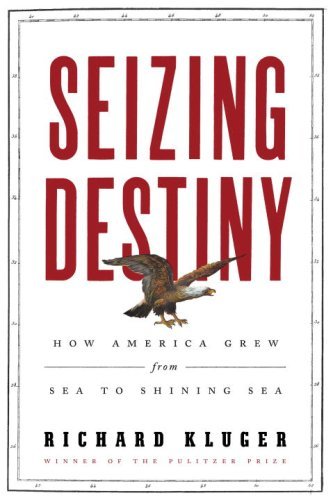What do you think?
Rate this book


649 pages, Hardcover
First published January 1, 2007
In Seizing Destiny, Richard Kluger, author of the Supreme Court study Simple Justice (1977) and Ashes to Ashes (1997), a Pulitzer Prize-winning look at the tobacco industry, takes as his subject America's expansion "from sea to shining sea." Critics are generally positive in their assessment of the book, and applaud Kluger's willingness to deal with the less-heroic details of American expansion. Some, however, question the author's thesis and its execution. That the motives for land acquisition were not as pure as earlier generations were led to believe is now orthodoxy, and Kluger's argument tends to reiterate this once-revisionist history. Still, the author's voluminous research and intricate analysis of the important events are sound, and his presentation is engaging.
This is an excerpt from a review published in Bookmarks magazine.